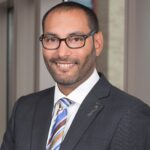
Figure 2: RISE registry demographic breakdown for rheumatoid arthritis patients. Data sourced from Izadi et al. findings.
“The fundamental challenge for RISE is that it was originally created for a specific purpose: to help practices survive in the Physician Quality Reporting System (PQRS) and pay-for-performance world,” says William Harvey, MD, MSc, FACR, clinical director of rheumatology and associate professor at Tufts University School of Medicine in Boston. Dr. Harvey serves as the chair of the ACR’s Committee on Research and Health Information Technology (RHIT). “We are now fighting against that built-in skew … our current data are not properly representative of all rheumatic patients. We are evolving our messaging to highlight how RISE is not just for federal reporting, but for clinicians interested in other aspects of our field, such as quality improvement, research and data to support health policy.”

Dr. William Harvey
Toward this end, the ACR is now taking additional steps to expand the diversity of RISE users and data. “We are now trying to use the data to learn something about the care of individuals and practices, and with that aim, we are diversifying the registry to have a more representative sample,” Dr. Harvey adds. “What we need now is for more practices to participate and share their data with the ACR—the more RISE users we have from diverse sections of the clinical world, the more robust RISE research findings and conclusions will be.”
Taking Charge of Making Change
The RISE efforts are among several steps the ACR has recently taken to bridge diversity gaps in rheumatology. A new Diversity and Inclusion Task Force comprising member volunteers will advise ACR leadership and members. And through The Lupus Initiative, the College has developed various materials and other resources to help rheumatologists increase clinical trial diversity.
To assist with clinical trial recruitment, Drs. Lim and Blanco highlighted the importance of community health workers. These are typically members of marginalized communities who work with providers to improve patient outcomes.
Community health workers can serve as an important bridge to communities, says Dr. Blanco. “Because they are known figures and well-grounded in their community, their voices are given levels of legitimacy that outsiders struggle to receive. When a community health worker tells their neighbors about what you, as a clinician, are doing to help them, how you are investing in their community, those patients are more likely to take the risk of a randomized clinical trial.”



